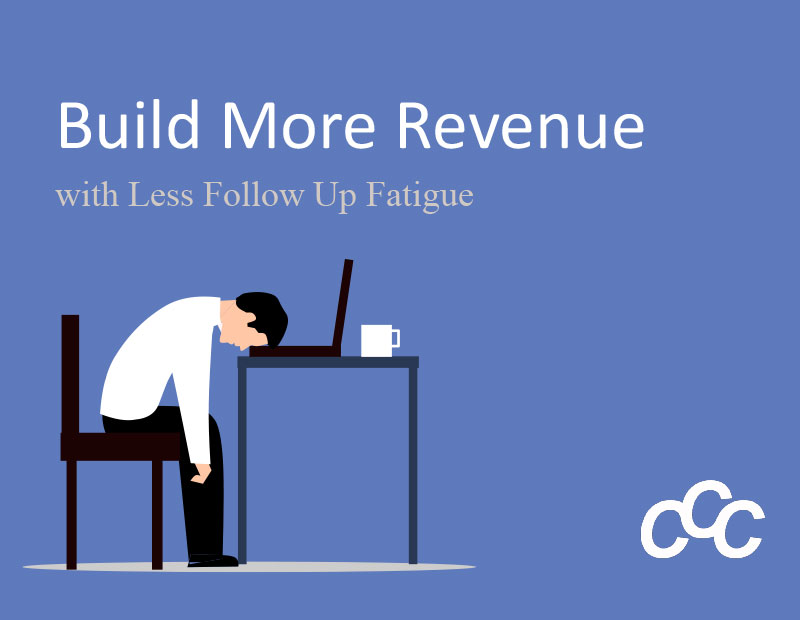[vc_row][vc_column][vc_column_text]Although a CRM is meant to help you meet your business goals, many businesses do not look at it this way. They only see it as a repository for customer contact information. In other words, they only collect customer data but do not see the need to define business goals as a foundation. They want to get it up and running, out of the box. As a result, sales do not improve, and follow up fatigue arises.
A CRM implementation without defined business goals as a foundation is like building a house without blueprints. It is not built well. It is confusing. It will cost you more money and time in the long run to fix it.
Why is it so important to implement your CRM with your business goals as a foundation?
Well, to put it simply. If your CRM is not founded on business goals, how will you know how to consistently and effectively engage with prospects and customers through their buyer’s journey? How will your sales team know if they are reaching the right people? How will they know how to engage with prospects and customers as a team?
These are all good questions that we must ask ourselves. Let’s look at common business goals that can be effectively used as a foundation for your CRM implementation.
First of all, we need to understand business goals.
A business goal must be actionable and measurable with the desired result. For instance, if you say, “I want to increase sales”. This is actionable, but it is not measurable. If you say, “I want to convert 100 prospects to customers over the next 6 months,” you have a business goal that can be measurable. We will keep this in mind as we look at 3 business goals that you can use with your CRM.
Shorten your sales cycle
Every business owner wants to close sales quickly, effectively, and efficiently. The goal could be to decrease the time to close a sale from the moment a prospect interacts with the business from 3 weeks to 1 week. A CRM implementation can be set up to help the business meet this goal by configuring sales performance reports that will help them see where they can improve. The reports can help them take actionable steps to achieve this goal such as:
- Identify bottlenecks in the sales funnel and adjust sales processes to prevent bottlenecking
- Integrate automation for sales processes that do not need human involvement like reminder emails.
- Recognize areas in your pipeline that may be unnecessary to close a sale or distracting to the prospect.
Spend less for acquisition
How much does it cost you to acquire a customer? Your customer acquisition cost (cac) equals your total acquisition spend divided by the number of customers acquired. As a business goal, you want to increase the number of customers you acquire within your marketing/sales budget. Your CRM can help you automate tasks that are needed for marketing and nurturing. Common tasks that can be automated include:
- Drip campaigns
- Segmentation
- Nurturing campaigns
- Referral tracking
- Contact management
There are probably other tasks that are specific to your sales cycle that can be automated. The point is, a CRM implementation with a goal to increase customer acquisition within a marketing/sales budget will set the foundation to improve how you spend your time and money.
Customer Retention
After you close your sale, what happens to the newly acquired customer? Are they forgotten as you move onto the next prospect? Not intentionally, but they often become an afterthought. Customer retention is a goal that every business needs to lay as a foundation for a CRM implementation. The goal could be to retain 90% of new prospects as returning and loyal customers.
The key to customer retention is the relationship. You can implement actionable tasks and processes in your CRM to help nurture the relationships. Use your CRM to
- Send personalized emails
- Notify your customers of incentives and other products based on their purchase history
- Ask for feedback
You can also use your CRM to track their buying behavior, purchase history, and other relevant information to ensure you are meeting their needs.
Conclusion
We shared a statistic in our last blog that companies who successfully implement a CRM improve sales by 29%. That success is built on your business goals. 2021 is right around the corner. Now is the time to evaluate your business goals and make sure you are using your CRM based on your goals. Whether you need to incorporate business goals into your CRM or you need to implement a CRM for a successful 2021, we can help you. Contact us for an exploratory call.[/vc_column_text][/vc_column][/vc_row][vc_row][vc_column][vc_column_text]





